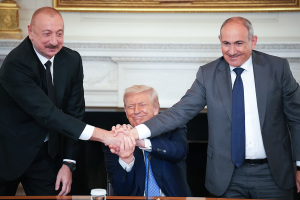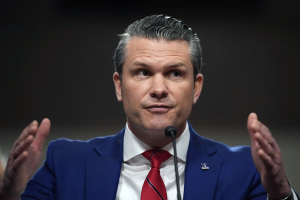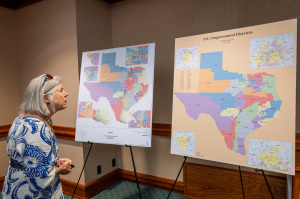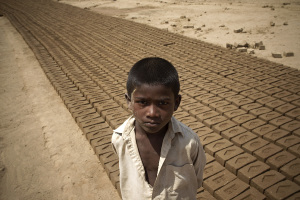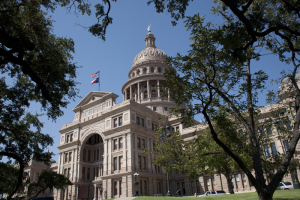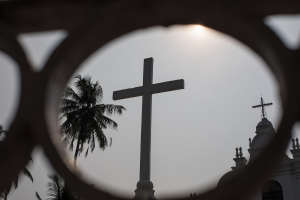Religion has become enclave for highly educated, married, middle-class families: Ryan Burge
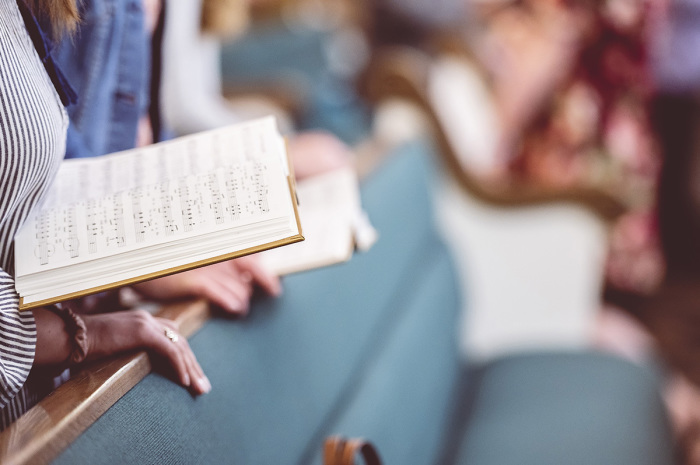
America's churches have become enclaves for highly educated, married, middle-class families with children, and that's troubling for democracy, according to political scientist and lay preacher with the American Baptist Church Ryan Burge.
Burge's findings are based on a recent analysis of data analyzing measures such as education, income and relationship status. The data is derived from studies such as the Nationscape survey, which includes responses from 477,000 respondents, and the Cooperative Election Study, "a 50,000+ person national stratified sample survey administered by YouGov."
Burge, an associate professor at Eastern Illinois University known for researching data on religion in the United States, concluded that "increasingly religion has become the enclave for those who have lived a 'proper' life."
"These results are hard to ignore and should sound some major alarms for any person of faith who is concerned about the large state of American society," he writes in his analysis. "College degree, middle class income, married with children. If you check all those boxes, the likelihood of you regularly attending church is about double the rate of folks who don't."
He notes that religious affiliation increases as education increases, citing that "the group with the highest level of religious affiliation are those with a master's degree."
Burge contends that the shrinking middle class, which makes up some 50% of the American population, is most likely to be attending church services weekly.
"The group that is the most likely to attend services are not the poor, nor the wealthy. Instead, it's people who smack in the middle of the income distribution," Burge writes. "This analysis points to the following conclusion: the people who are the most likely to attend services this weekend are those with college degrees making $60K-$100K. In other words, middle class professionals."
Burge believes the development of the church as a middle-class enclave is problematic for American democracy because it makes the church exclusionary when it should be a place where people of all backgrounds can come together to "build bridges."
"Religion, at its best, is a place where people from a variety of economic, social, racial, and political backgrounds can find common ground around a shared faith. It's a place to build bridges to folks who are different than you. Unfortunately, it looks like American religion is not at its best," he explains.
"It's become a hospital for the healthy. An echo chamber for folks who did everything 'right,' which means that it is seeming less and less inviting to those who did life another way," he adds. "Do I think that houses of worship have done this on purpose? Generally speaking, no. But they also haven't actively refuted this narrative."
A number of studies over the years have shown how shifting cultural norms and the economy have impacted how people treat things like marriage and cohabitation.
While marriage has been shown to positively impact society in health outcomes, longevity and economic security, for example, a recent report from the National Center for Health Statistics, showed how the marriage rate reached its lowest point in more than 100 years with growing economic insecurity.
For the people who get married and endure, University of Maryland sociology professor Philip Cohen, who authored The Coming Divorce Decline, suggested that marriage appears to be losing its original intent and is becoming more of an "achievement of status."
"Marriage is becoming more selective, and more stable, even as attitudes toward divorce are becoming more permissive, and cohabitation has grown less stable," Cohen wrote. "The U.S. is progressing toward a system in which marriage is rarer, and more stable, than it was in the past, representing an increasingly central component of the structure of social inequality."
Contact: leonardo.blair@christianpost.com Follow Leonardo Blair on Twitter: @leoblair Follow Leonardo Blair on Facebook: LeoBlairChristianPost















